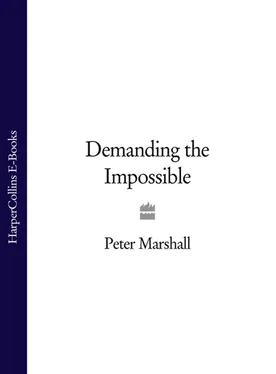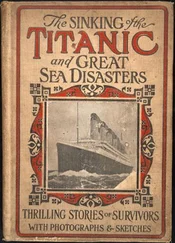In fact, Thoreau was a gradualist and ‘unlike those who call themselves no-government men, I ask for, not at once no government, but at once a better government.’ He might not like the government and the State, but this did not mean that he would have nothing to do with it: ‘I quietly declare war with the State, after my fashion, though I will still make what use and get what advantage of her I can.’ 27 While he refused to pay tax to finance war, he was willing to pay tax for roads and schools. Like the Greek Stoics whom he admired, he considered himself beyond politics, and however the State dealt with his body, his mind would always be free: ‘If a man is thought-free, fancy-free, imagination-free … unwise rulers or reformers cannot fatally interrupt him.’ 28
Although Thoreau shares the ultimate anarchist goal of a society without a State, he is willing to make use of it in the present and believed that a long period of preparation would be necessary before it eventually withered away. Nevertheless, he anticipates modern anarchism by envisaging a world of free and self-governing individuals who follow their own consciences in a decentralized society. He is also a forerunner of social ecology in recognizing that by preserving the wilderness of nature, we preserve ourselves.
PART FOUR Classic Anarchist Thinkers
Our destiny is to arrive at that state of ideal perfection where nations no longer have any need to be under the tutelage of a government or any other nation. It is the absence of government; it is anarchy, the highest expression of order.
ELISÉE RECLUS
Once annihilate the quackery of government, and the most homebred understanding might be strong enough to detect the artifices of the state juggler that would mislead him.
WILLIAM GODWIN
Freedom without Socialism is privilege and injustice … Socialism without freedom is slavery and brutality.
MICHAEL BAKUNIN
All governments are in equal measure good and evil. The best ideal is anarchy.
LEO TOLSTOY
Mind your own business.
BENJAMIN TUCKER
15 William Godwin The Lover of Order
WILLIAM GODWIN WAS THE first to give a clear statement of anarchist principles. In his own day, his principal work An Enquiry concerning Political Justice (1793) had an enormous impact. ‘He blazed’, his fellow radical William Hazlitt wrote,
as a sun in the firmament of reputation; no one was more talked of, more looked up to, more sought after, and wherever liberty, truth, and justice was the theme, his name was not far off … No work in our time gave such a blow to the philosophical mind of the country as the celebrated Enquiry concerning Political Justice . 1
The Prime Minister William Pitt considered prosecuting the author, but decided against it on the grounds that ‘a three guinea book could never do much harm among those who had not three shillings to spare.’ In fact, the Political Justice was sold for half the price, and many workers banded together to buy it by subscription. Pirated editions appeared in Ireland and Scotland. There was sufficient demand for Godwin to revise the work in 1796 and 1798 in cheaper editions. It not only influenced leaders of the emerging labour movement like John Thelwall and Francis Place, but obscure young poets like Wordsworth, Southey and Coleridge. 2
The very success of Godwin’s work, despite its philosophical weight and elegant style, shows how near the Britain of the 1790s was to revolution. The war declared by Pitt on revolutionary France however soon raised the spectre of British patriotism. His systematic persecution of the radical leaders and the introduction of Gagging Acts in 1794 eventually silenced and then broke the reform movement for a generation. Godwin came boldly to the defence of civil liberties and of his radical friends in a series of eloquent pamphlets, but by the turn of the century he too had fallen into one common grave with the cause of liberty. Thrown up by the vortex of the French Revolution, he sunk when it subsided. Most people in polite society, De Quincey wrote, felt of Godwin with ‘the same alienation and horror as of a ghoul, or a bloodless vampyre’. 3
But not all was lost. It was with ‘inconceivable emotions’ that the young Percy Bysshe Shelley found in 1812 that Godwin was still alive and he went on not only to elope with his daughter but to become the greatest anarchist poet by effectively putting Godwin’s philosophy to verse. 4 Robert Owen, sometimes called the father of British socialism, became friendly soon after and acknowledged Godwin as his philosophical master. In the 1830s and 1840s, at the height of their agitation, the Owenites and Chartists reprinted many extracts from Godwin’s works in their journals, and brought out a new edition of Political Justice in 1842. Through the early British socialist thinkers, especially William Thompson and Thomas Hodgskin, Godwin’s vision of the ultimate withering away of the State and of a free and equal society began to haunt the Marxist imagination.
Godwin at first sight appears an unlikely candidate for the title of first and greatest philosopher of anarchism. He was born in 1756 in Wisbech (the capital of North Cambridgeshire), the seventh of thirteen children. His father was an obscure independent minister who moved to the tiny village of Guestwick in northern Norfolk soon after William’s birth. But a strong tradition of rebellion existed in the area. There had not only been a peasants’ revolt against the land enclosures in 1549, but during the English Revolution East Anglians had formed the backbone of the Independent movement. Godwin’s father would sit in his meeting-house in ‘Cromwell’s chair’, so named because it was said to have been a gift from the leader of the English Revolution.
Godwin moreover was born into a family of Dissenters who rejected the Church of England and its articles of faith. They defended at all costs the right of private judgement. Although officially tolerated since 1689, the Dissenters were unable to have their births registered, to enter the national universities, or to hold public office. The result was that they formed a separate and distinct cultural group and made up a permanent opposition to the State of England. Godwin was steeped in this tradition: his grandfather had been a leading Dissenting minister, his father was a minister, and he aspired from an early age to follow in their footsteps.
As a boy Godwin was deeply religious and intellectually precocious. It was decided to send him at the age of eleven to become the sole pupil of a Reverend Samuel Newton in the great city of Norwich. It was to prove the most formative period of Godwin’s life. Newton’s harsh treatment of Godwin left him with a hatred of punishment and tyranny. But Newton was also an extreme Calvinist, a follower of the teachings of Robert Sandeman, and the pious Godwin soon adopted his new tutor’s creed.
Sandeman lay great stress on reason: grace was to be achieved not by good works or faith, but by the rational perception of the truth, the right or wrong judgement of the understanding. The Sandemanians interpreted the teachings of the New Testament literally: they sought to practise brotherly love and share their wealth with each other. They were also democratic and egalitarian, both rejecting majority rule in favour of consensus and annihilating the distinctions of civil life within the sect. All men and women, they affirmed, are equally fit to be saved or damned.
Godwin went on to pull the Calvinist God down from the heavens and to assert the innocence and perfectibility of man, but he retained much of the social and economic teaching of the Sandemanians. He not only traced his excessive stoicism and condemnation of the private affections to his early Calvinism, but specifically held Sandemanianism responsible for his belief that rational judgement is the source of human actions.
Читать дальше












